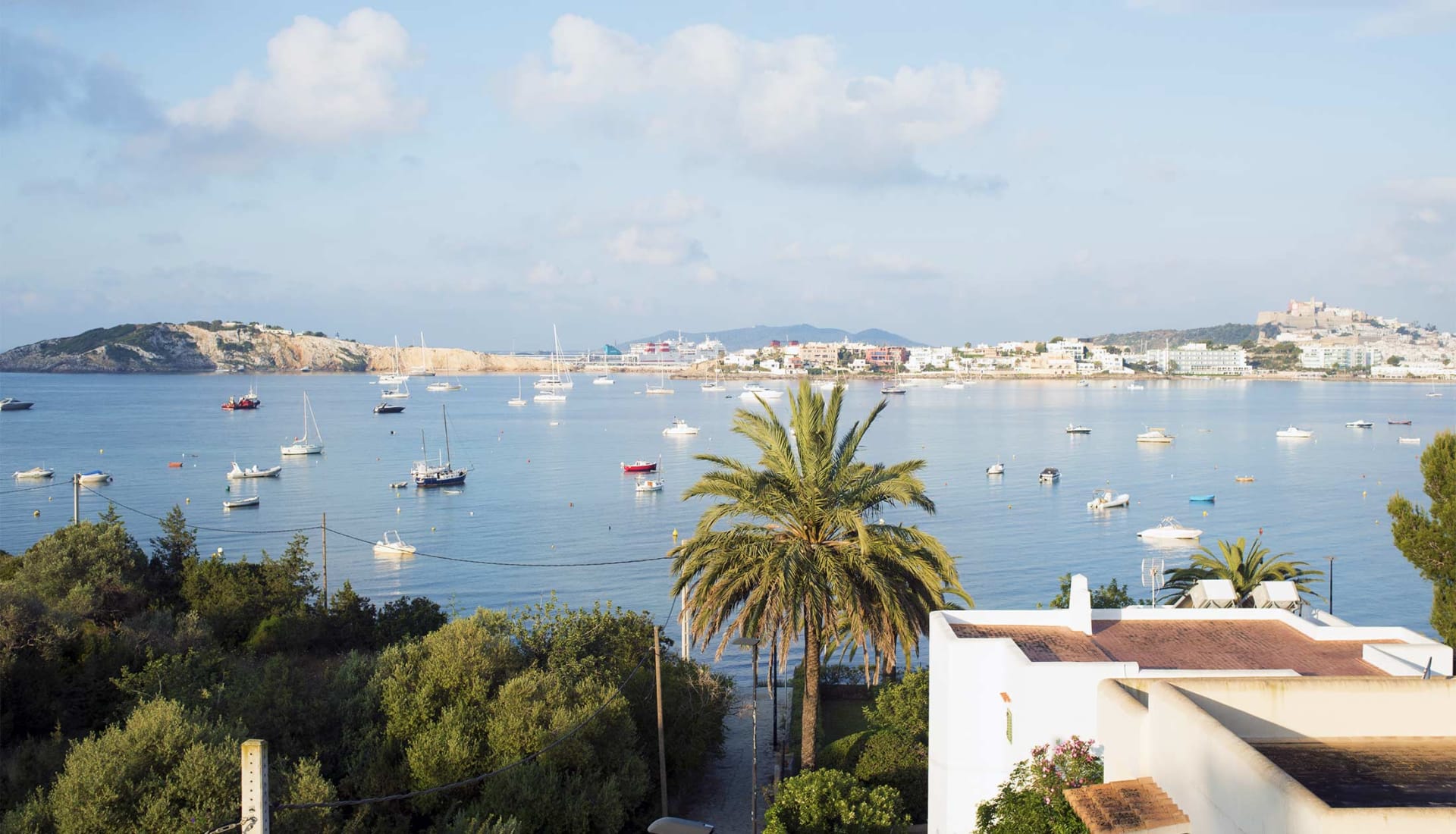
We Went To Remedy State, A New Wellness Retreat In Ibiza For The Dance Music Industry
Electronic music has never exactly been synonymous with good health. Dancing might be a form of exercise, but paired with late nights, alcohol and drugs—and, if you’re an artist, a hectic touring schedules—it’s a lifestyle that can take its toll on the body and brain.
Musicians are three times more likely than average to suffer from anxiety and depression, according to a 2016 study conducted by British music charity Help Musicians UK. The recent, high-profile suicide of EDM titan Avicii has underscored the severity of the situation. As the aforementioned study reported, “those involved in dance music are in need of healing.”
With this in mind, Ben Turner (manager to artists including Richie Hawtin and Agoria, and co-founder of the International Music Summit in Ibiza) and Blaise James DeAngelo (a producer, DJ and Skrillex’s former label manager) created Remedy State.
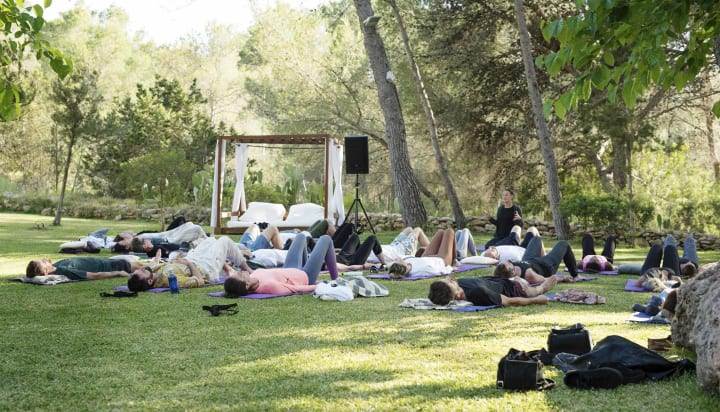
The inaugural two-and-a-half-day retreat was hosted at Sa Talaia, an agritourism resort close to San Antonio in Ibiza. It ran from May 21-23 as the lead-in to the International Music Summit, a three-day electronic music conference founded in 2008 by Turner and Pete Tong. Aimed at artists and those working in the industry, Remedy State included vegetarian catering, yoga, nature walks, breathing workshops. It also featured talks from experts including Dr. Norman Rosenthal, the South African psychiatrist who first prescribed seasonal affective disorder (SAD), and Richard Barrett, a former World Bank consultant and an author whose work links creativity with wellness.
I don’t think anyone, not even Turner and DeAngelo, knew exactly how the retreat would unfold—it was their first, after all. And though expectations for Remedy State were high, it’s safe to say that many who attended were surprised by how much they got out of it.
After some opening remarks from Turner and DeAngelo and a brief introduction for each speaker, the retreat was launched with a talk by Catherine Arnold. The former TV director became a nutritional therapist after her husband, DJ and promoter Paul Arnold, was diagnosed with leukemia in 2007. She used nutrition to accelerate his recovery with good food.
That eating well is intrinsic to good health is a given, but with so much competing information—including contrasting opinions about the benefits of eating paleo, vegan and gluten-free diets, among many others—not all of us know exactly what a healthy diet looks like. Arnold explained it in simple terms, with recommendations such as: ensure your plate is comprised of 50% vegetables (not potatoes!), 25% protein and 25% carbohydrates; eat the rainbow—or foods of various colors, especially greens; and try to include protein in every meal and snack. Advising us to make our own sauerkraut and kefir (a fermented milk drink) was about as complicated as it got, and while it’s unlikely too many of us will go on to do like Arnold and host “fermentation parties” at home, her advice was practical and easy to incorporate into everyday life.
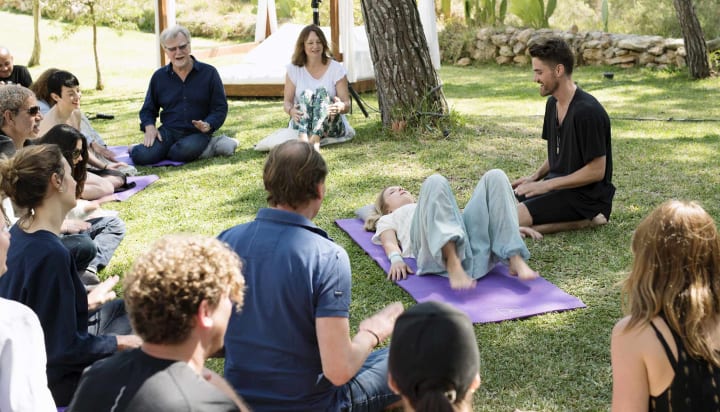
After the nutrition talk, we went straight into a workshop with breath coach Stuart Sandeman of Breathpod, together with Alistair Grey of executive coaching business Mindful Talent (Sandeman coaches for Mindful Talent, too). Also a DJ and producer and a former banker, Sandeman fell into breath work almost by accident—it was a last-minute Mother’s Day present that he shared with his mom a couple of years back. His girlfriend had recently passed away from cancer, and the healing he experienced through breath work was so powerful that he was inspired to become a teacher himself.
The first session was mainly an introductory talk with about twenty minutes of breathing, while the second session was a full hour of the “conscious connected” style of breath work. We laid on yoga mats with knees bent and eyes closed, and were instructed to inhale through the mouth, letting our stomachs expand, then exhale gently, “almost like a sigh.” Gentle electronic music played in the background—think the likes of “Angel Echoes” by Four Tet.
When Sandeman warned us that we might get emotional during the session, I thought this was highly unlikely. But after about twenty minutes of deep breathing I had a sudden flashback: a painful memory from childhood that made sense of feelings I’d carried with me for years. I started to sob, and Sandeman came over with hugs and tissues until I’d calmed down and was able to breathe again. It was uncomfortable to lose control in front of a group of people, but I wasn’t the only person to have a strong reaction. One person said he felt like his deceased grandfather was embracing him; another felt the presence of her mother, who had recently passed away. I’ve never done ayahuasca, but I imagine it might feel similar. It was a kind of intense emotional purging.
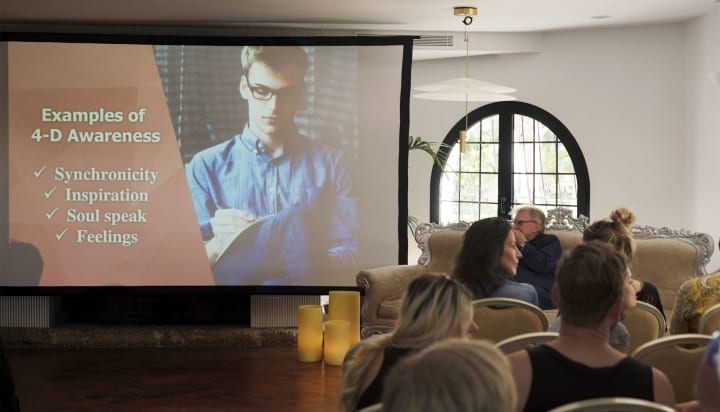
Next, Richard Barrett gave a fascinating talk that looked at the effect of impeded emotional development on later stages of life, and at the role of the soul versus the ego. Barrett was an eccentric, loveable character, prone to baffling jokes and difficult questions. “Who are you at the deepest level of your being?” he asked the BBC Radio 1 DJ B.Traits, who was understandably flummoxed, when he hosted a panel called Soul Creativity And The Meaning Of Life later that evening.
After that philosophical deep-dive, we were whisked away by Walking Ibiza founder Toby Clarke for a sunset stroll that ended up being a dusk walk by the time the panel wrapped up. It was subsequently abridged, but lovely all the same. Clarke, who was born on the island, showed us the wild herbs growing under our noses and a very different Ibiza to the one famous for its club. Back at the resort, he had us take our shoes and socks off to walk on the lawn to get “grounded,” and supposedly, to release electricity in our body that can cause illness.
The last session of the day was hosted by veteran DJ and producer Tom Middleton, now a trained sleep scientist, sound architect and psychoacoustic researcher (he studies the psychological and physiological responses associated with sound). The floor was lined with yoga mats, and Middleton handed out eye masks as we were treated to 90 minutes of his dreamy, calming soundscapes. It was the perfect way to wind down after a jam-packed day.
Day two was just as full, starting early with another session of gentle hatha yoga hosted by yoga and meditation teacher Anna McColl. It was a treat to perform on the resort lawn with the sun on our backs.
The next speaker, Dr. Norman Rosenthal, was arguably the best known of the presenters. The clinical professor of psychiatry at Georgetown Medical School spoke about what he calls “The Seventh Health Habit”, transcendental meditation (or TM, as it’s abbreviated). He’s written a book about it, Transcendence, endorsed by TM’s most prominent devotee, David Lynch, and he made a pretty convincing scientifically backed argument for its therapeutic effects.
There were also practitioners offering one-on-one sessions: Catherine Arnold judged biological age and arterial density from a nutritional analysis. There was Dr. Dwain Dougan, a Canadian Ayurvedic doctor who was able to make some startlingly accurate observations about my health after taking my pulse and looking at my tongue. And then there was former Olympian Tim Weeks, now working as an executive coach as well as an event director in the wellness, health and lifestyle sphere, who provided insights on how to make the most out of your time.
Middleton returned to give a comprehensive, engaging talk about the importance of sleep, including some fabulous tips on how to sleep better—and not just the run of the mill advice you receive from your doctor, either. His background as a DJ means that he understands the realities of the touring lifestyle, but there are still things everyone can do to get a better night’s sleep. His number one tip? Invest in custom earplugs.
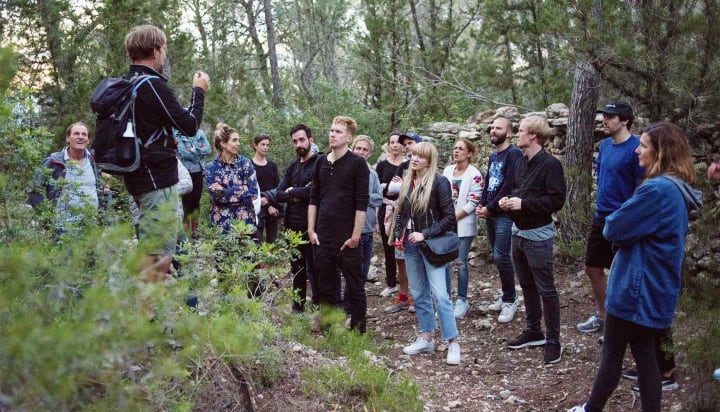
The most moving session of the day, though (other than the breathing workshop) was the music and wellness panel on Tuesday evening. It expanded on topics that Christine Brown of music charity Help Musicians UK spoke about earlier in her keynote on music and wellness, which drew on the findings of its own Can Music Make You Sick?, the first UK academic study on the incidence of mental health among musicians.
On the panel, hosted by Brown, an artist broke down as they spoke about the pressures of touring and the imperative, often commercially driven, to perform even when it’s not in the best interests of your mental health to do so.
It was probably the most vulnerable moment in a retreat that had many of them, and it felt like the sort of thing that wouldn’t be likely to happen in a larger, less-intimate space.
There was a surprising sense of openness and connectedness at the retreat, even though most of us were strangers to each other. The intimacy of the group—there were about forty of us in total, including presenters—probably made it feel like a “safer” space to share thoughts and feelings we might have otherwise kept to ourselves. And in such a pleasant environment as Sa Talaia, which featured a luxurious swimming pool surrounded by plush sun beds and pine trees, it was hard not to feel relaxed.
Catherine Arnold oversaw the food menu, a delicious, gourmet vegetarian spread that included healthy treats like raw lemon tart and poached pears with coconut yogurt. Care was even taken to provide special hydration in the form of No 1. Rosemary Water—a rosemary infused herbal H2O with some claims to anti-carcinogenic, antioxidant and memory-boosting properties.
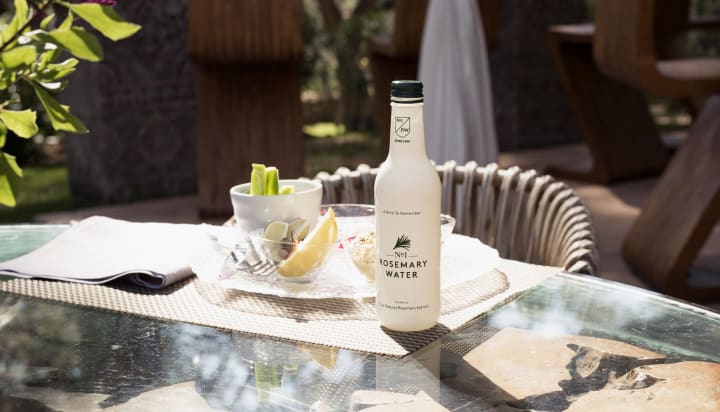
I wondered, as a few others did, why they had chosen to run Remedy State ahead of the International Music Summit and not after the conference and huge closing party on the Friday night. For Turner, who was partly inspired by Ayurvedic clinics he has attended in Germany with Richie Hawtin, hosting the retreat after IMS was never an option. “It misses the point of what we were trying to achieve, which was that people could leave completely focused and come to a place like IMS to do business, which is intense and demanding,” he said.
There were a couple of minor teething problems. The schedule was probably a little overcrowded, the result of having to cram everything into two days to avoid competing with the noise from a nearby party called The Zoo Project. Still, Turner says he was overwhelmed by the positive response to Remedy State both during and after the retreat.
“People need somebody to talk to, and this is still, unfortunately, a male-dominated industry. And men traditionally don’t like to open up and speak about their issues,” he said.
“The most powerful thing to come out of IMS this year was the amount of men who have come up to Mark Lawrence [chief executive of the Association for Electronic Music, founded by Turner) and Blaise and me and said, ‘Thanks for doing this and bringing this up, because I haven’t been able to talk about it.’”
The challenge now, Turner says, is to ensure that the retreat isn’t just a “hot bath”—a quick fix that ultimately doesn’t do much in the way of effecting long-term change.
“My big focus now is what is the digital companion to a retreat like this,” he says. “And to get it right is to create something that can be with that person for more than two days or two hours.”
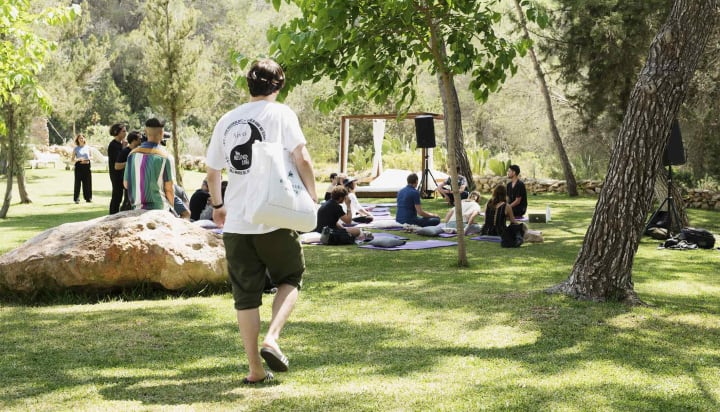
See more photos from Elizabeth Claire Herring on Instagram.
Published June 18, 2018.
